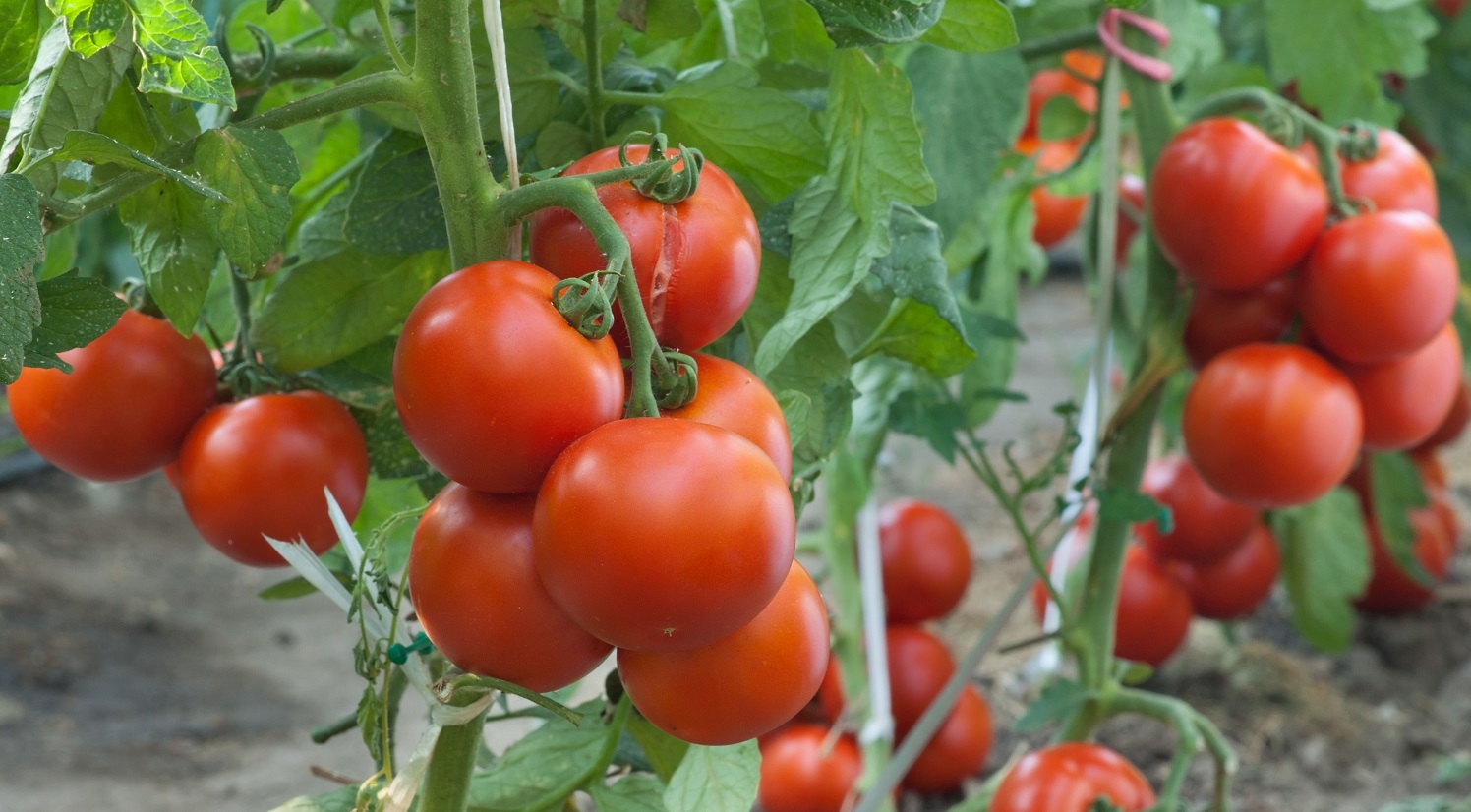Tomato farming remains one of Ghana’s most lucrative ventures, but successful cultivation requires more than just planting seeds and hoping for the best. With increased demand for high-quality, disease-resistant varieties and the need for consistent yields, farmers must adopt modern, sustainable practices from land preparation to harvesting.
At Demeter Ghana Limited, we work closely with smallholder and commercial farmers, providing high-performance agricultural inputs that ensure your tomato fields thrive. Below is a practical, expert-led guide on how to boost both quality and quantity of your tomato yields in 2025.
1. Land Preparation – Lay the Right Foundation
a. Site Selection
Choose a site that receives at least 6 to 8 hours of direct sunlight daily. Tomatoes flourish in warm conditions and require consistent exposure to full sun for robust vegetative growth and fruit development.

b. Variety Selection
Selecting the right tomato variety can significantly influence your yield. Choose a variety that suits your local climate and market demand and has strong disease resistance.
- Recommended varieties:
- Vizela F1 – high-yielding, robust against common diseases
- Shanty Improved – strong market preference and disease tolerance
- Vizela F1 – high-yielding, robust against common diseases
Available through Demeter Ghana Ltd’s distribution network.
c. Soil Testing and Preparation
Tomatoes grow best in well-drained sandy loam soil with a pH range of 6.2–6.8. Before planting, conduct a soil test to assess nutrient levels and pH balance.
- Correct acidic soils using Calciprill from Demeter Ghana Ltd. This granulated lime product rapidly adjusts pH and improves nutrient availability.
- Improve soil structure with compost or organic matter.
- Treat the soil for nematode infestation using OMEX Vigga, a biostimulant that boosts plant resistance while enhancing early root vigour and stress tolerance.
2. Nursery Management and Transplanting
a. Seed Treatment and Nursery Care
Start your tomatoes in a nursery for 3–4 weeks. Proper nursery care reduces transplant shock and leads to healthier plants in the field.
- Treat seeds with Eco-T (Trichoderma asperellum) from Demeter Ghana Ltd. Eco-T protects seedlings against fungal infections and promotes strong root development naturally.

b. Spacing and Planting
Transplant seedlings when they are 15–20 cm tall. Space plants 45–90 cm apart, depending on the variety, to ensure proper air circulation and reduce disease spread.
- Tip: Proper spacing increases sunlight penetration and improves fruit quality.
3. Irrigation and Moisture Management
Tomatoes require consistent moisture—not too wet, not too dry. Drip irrigation or watering in the early morning helps prevent fungal issues while maintaining soil moisture levels.
- Monitor fields regularly and avoid water stress, especially during flowering and fruit set.
4. Fertilisation Strategy – Feed to Thrive
A comprehensive fertilisation plan is essential for optimal tomato growth. Different stages of the tomato lifecycle require different nutrients.
Key Products from Demeter Ghana:
- NPK 15-15-15 – for balanced early growth
- Omex Starter Pro – supports strong root establishment
- Omex Bloom Boost – enhances flowering and fruit formation
- NPK 0-52-34 (Nova Peak) – improves fruiting and ripening
- NPK 13.5-0-46 – potassium-rich support for late-stage development
- Calcium Nitrate – essential for preventing blossom-end rot and improving fruit firmness
Regularly inspect plants for signs of deficiency and correct with targeted foliar applications.

5. Plant Support and Weed Control
a. Pruning and Staking
Prune side shoots and remove dead leaves to reduce humidity and disease pressure. Support plants using stakes or trellises to prevent fruit contact with the soil.
b. Weed Management
Keep your fields weed-free to reduce pest harbourage and competition for nutrients. Regular weeding also improves airflow around plants.
6. Pest and Disease Management
Use Integrated Pest Management (IPM) approaches that combine monitoring, cultural practices, biological control, and, where necessary, safe chemical use.
- Preventative strategies, such as proper spacing, pruning, and resistant varieties, play a major role.
- For biological control, Zynergy (copper + zinc) from Omex is a natural fungicide alternative to mancozeb and is effective against a wide range of fungal pathogens.
7. Harvesting – Handle With Care
Tomatoes should be harvested when fruits are firm and evenly coloured. Harvest regularly to avoid over-ripening and pest attraction. Handle fruits gently to reduce bruising and losses.

Final Thoughts
Incorporating science-backed agronomic practices with trusted inputs from Demeter Ghana Limited can significantly boost your tomato farm's productivity and profitability. From soil testing and variety selection to fertilisation and disease control, every step counts.
For technical support or to place an order for any of the products mentioned, contact Demeter Ghana Ltd via phone or WhatsApp at +233 (0)24 529 7047, or message us directly on LinkedIn.



.jpg)
.png)
